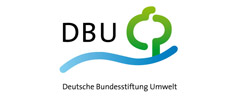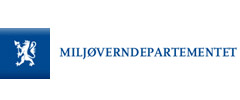Women for Water partnership statement to the World Summit in New York
Millenium Development Goal 3 should go beyond providing schooling for girls only
09.09.2005 |Sascha Gabizon
Introduction
WECF is one of the founding organistions of the Women for Water partnership, an alliance of grass-roots women's organisations world-wide, promoting access to safe drinking water and adequate sanitation for all.
The Women for Water partnership calls on the Heads of States meeting in New York next week to dare to go back to previous commitments and go further with MDG Goal nr. 3 on Women's Rights.
Download the statement to the Millenium Development Goal 3 by the Women for Water partnership.
The Women for Water Statement:
Women for Water partnership find it unacceptable that target MDG3 does not tackle underlying problems and causes of gender inequality and women’s empowermentMDG 2: Achieve universal primary education.
Target:
Ensure that all boys and girls complete a full course of primary schooling by 2015.
MDG 3: Promote gender equality and empower women
Target:
Eliminate gender disparity in primary and secondary education, preferably by 2005 and in all levels of education no later than 2015.
Women for Water partnership (WfWfW) find it unacceptable that the target for MDG 3 does not tackle the underlying problem/causes of gender inequality and women’s empowerment. It is an elaboration of MDG2 and evades commitment to enforce internationally agreed upon women’s rights. Despite international consensus that gender equality and women’s full and equal participation are prerequisites for sustainable development, the MDGs do not show resolve to address these and hence do not tackle poverty at its roots.
As WfWfW partnership we draw the attention to relevant passages in the Millennium Declaration, i.e. III Development and poverty eradication:
“We also resolve to promote gender equality and the empowerment of women as effective ways to combat poverty, hunger and disease and to stimulate development that is truly sustainable…
… We reaffirm our support for the principles of sustainable development, including those set out in Agenda 21, agreed upon at the UN Conference on Environment and Development.”
WfWfW calls upon governments to see that the above is brought in line with the outcome document of CSD13.
Furthermore, governments are urged to fully integrate the UN-commitments made to women over the past ten years and to adopt legal frameworks and domestic regulations that guarantee all these rights for women and girls.
Stockholm, 23rd August 2005
Steering Committee WfWfW partnership
www.womenforwater.org
info@womenforwater.org
Further information regarding the 2005 UN Summit: websites
FW from the CSD Education Caucus list:
Over 170 Heads of State and Government will meet in New York, 14-16 September, to take bold decisions in the areas of development, security and human rights. The agenda is based on an achievable set of proposals outlined in March by Secretary-General Kofi Annan in his report In Larger Freedom.
World Summit website.
Draft Outcome Document.
Overview - World Summit Events
Report Launchings
MDGs Intelligence Briefs from the UNDG
MDG Toolkit
National MDG Reports
A UNITED NATIONS TRULY FOR "WE THE PEOPLES"
Civil Society Presentation to the World Summit 2005 United Nations, New York, September 16, 2005
I stand here as a global civil society activist. I am here to echo the insistent and disenchanted voices of global civil society movements-voices telling the Heads of State present in this World Summit that current world conditions are ethically unacceptable, politically devastating, and economically and environmentally unsustainable.
I am here to echo the World Social Forum message that "other worlds are possible" and that to achieve these alternatives, radical change is necessary. I echo the call for women and men to be at the centre of development and of a new democracy forged from social justice and gender justice, and in harmony with the planet. I echo the voices that are telling this General Assembly that you have lost a historical opportunity to stand by your obligations and fulfil your promises of a just world. Your lack of commitment to the mission of the United Nations is preventing the UN from being the UN, of we the peoples.
The urgent changes that the world needs are only going to be possible if three major anti-democratic, unjust global forces, sustained by powerful countries and their allies, are dismantled-neoliberalism, militarism and fundamentalisms of all kinds.
A life free of want will be possible only if we challenge the paradigm of development that prioritizes economic growth above human rights; only if we recover what civil society and its movements of emancipation have contributed to the new paradigm; only if we recognize the fundamental role of women in the productive and reproductive economies.
In a world where there is so much wealth but where poverty and exclusion are increasing dramatically the key problem is the tremendous inequality of wealth legitimised by an unjust international order that favours the most powerful.
Where are the new instruments of accountability and global taxation for the multinational corporations? Where are the international norms to control their expropriation of the cultural and natural wealth of peoples by global capital? How long must fatal pandemics, such as HIV/AIDS, be subordinated to the profit-making interests of transnational corporations; How long before scientific progress is put in the service of humanity instead of being monopolised by the market?
Finally, where are the democratic proposals to eradicate indecent and immoral debt? This debt has become an instrument of control and subordination to hegemonic interests. This debt must no longer be charged to the citizens of the world.
A life without fear is not possible while political power is in alliance with the economic power of the arms trade. This alliance has no legitimacy to decide when a situation is an "imminent threat" or a "latent danger" because they themselves are the greatest threat and the biggest danger; because they resort to lies and to an arbitrary unilateralism to satisfy their thirst for permanent war.
We call for a general disarmament not a "progressive" or a "selective" one. We call for a change in the logic of conflict resolution, broadening the approach to include other causes of fear. A life without fear for millions of women also requires consideration of violence as a brutal violation of human rights, in all its spheres-domestic, sexual and in armed conflicts. A life without fear is built by challenging racism, recognizing the rights and the autonomy of indigenous peoples. A life without fear must be built on a reaffirmation of the rights of social movements, such as women's movements, to contribute to a peace agenda. A Life without fear requires respect for the international agreements that represent a global ethical responsibility.
Those governments that resist signing the Kyoto protocol are today directly responsible for the disaster and suffering left by hurricane Katrina. Governments that claim impunity in the face of war crimes, resisting the fortification of international law, should be accountable to history. The struggle against terrorism cannot be carried out at the expense of human rights.
How can we live in liberty in these conditions? What kind of liberty can we build when hunger is depriving new generations of vital capacities? What kind of liberty can be enjoyed without the recognition of sexual rights and reproductive rights and the right to different forms of sexuality and love?
True liberty will only be possible if indivisible, universal and interdependent human rights are placed at the centre of the structure and the dynamics of the United Nations and if new structures incorporate the processes of democratisation and the advances made in the arena of human rights.
True liberty will only be possible if the States are secular and represent all their citizens equally; only possible without the influence of religious institutions in the United Nations, where their presence is arbitrary and an obstacle to the development of democratic interests. Similarly, the power imbalances in the Security Council will not be resolved by merely reducing or expanding membership but also by the elimination of the right of veto.
To meet the challenges of the new millennium, the United Nations cannot continue to be a forum solely for governments, as has been the case in this summit-democratic rebuilding must be open to multiple contributions from social movements and democratic forces to build a different world, without poverty and exclusions. The United Nations must recover its mission by being truly representative of 'we the peoples'. Either this or nothing at all!
Presented by Virginia Vargas Centro de la Mujer Peruana Flora Tristan; Articulación Feminista Marcosur; International Council of the World Social Forum; Feminist Task Force of the Global Call to Action against Poverty (GCAP)
http://www.un.org/webcast/summit2005/statements16/vargas050916spa.pdf
POR UNA NACIONES UNIDAS DE NOSOTRAS Y NOSOTROS LOS PUEBLOS Presentación de la Sociedad Civil Global a la Cumbre del Milenio Naciones Unidas, setiembre 16, 2005 (versión reducida---PARA INTÉRPRETES) Como activista de la sociedad civil global, me hago eco de las voces -insistentes y desencantadas- de los movimientos sociales globales, que les dicen a los Jefes de Estado presentes en esta Asamblea General que este mundo, tal como esta, es éticamente inaceptable, políticamente devastador, económica y ambientalmente insostenible. Que afirman -tal como señala el Foro Social Mundial- que otros mundos son posibles y que, para lograrlos, es urgente un cambio radical, que coloque a mujeres y hombres en e1 centro del desarrollo Que le dicen a esta Asamblea general que ustedes están perdiendo una oportunidad histórica de asumir sus obligaciones y cumplir con sus promesas de lograr un mundo más justo. Que su falta de compromiso con la misión de Naciones Unidas esta impidiendo que sea de nosotras y nosotros, los pueblos, Y que los urgentes cambios que e1 mundo requiere sólo serán posible desmantelando tres fuerzas globales antidemocráticas, injustas y sostenidas por países poderosos y sus aliados: el neoliberalismo, el militarismo y los fundamentalismos de diferente signo. Una vida sin carencias sólo será posible si se con fronta el paradigma de desarrollo que prioriza e1 crecimiento económico sobre los derechos humanos. En un mundo donde la producción de riqueza es enorme y a1 mismo tiempo la pobreza y exclusión son dramáticamente crecientes, el problema central es la tremenda inequidad en la distribución de la riqueza! Situación legitimada por un orden internacional injusto que favorece a los más poderosos. Donde están los nuevos instrumentos de rendición de cuentas y de impuestos globales a las corporaciones multinacionales? Hasta cuando la atención de epidemias mortales como el SIDA seguirá supeditada a las ganancias de las trasnacionales? Donde están, finalmente, las propuestas democráticas frente a una deuda indecente e inmoral, pagada ya de muchas formas. Esa deuda es éticamente incobrable para la ciudadanía del mundo..
Una vida sin miedos no será posible mientras el poder político esté en alianza con el poder económico de las trasnacionales de armamentos. Esta alianza no tiene legitimidad para definir cuando una situación es "amenaza inminente" o un peligro "latente". Ella misma es amenaza y peligro, porque recurre a la mentira y al unilateralismo arbitrario para imponer sus afanes de guerra permanente. Exigimos no un desarme progresivo ni selectivo, sino un desarme general. Exigimos modificar la lógica de resolución de conflictos, ampliando la mirada a otras causas del temor. Una vida sin temores se construye confrontando la violencia contra la mujer en todos los ámbitos, confrontando el racismo, reconociendo los derechos y la autonomía de los pueblos indígenas. Se construye afirmando el derecho de movimientos sociales, como el de las mujeres, en aportar a una agenda de paz. Y se construye respetando los acuerdos internacionales, que constituyen una responsabilidad ética global. Gobiernos que se resisten a firmar el Protocolo de Kyoto tienen hoy responsabilidad en el desastre y sufrimiento dej ado por e1 h????án Katrina. Gobiernos que pretenden la impunidad frente a sus crimenes de guerra, resistiéndose a fortalecer la ley internacional" tendrán que rendir 1 cuentas a la historia. La lucha contra e1 terrorismo no puede hacerse al margen del sistema de derechos humanos. Como vivir en libertad en estas condiciones? Que libertad estamos construyendo cuando sabemos que el hambre esta quitando capacidades irrecuperables a las nuevas generaciones? Que libertad puede haber sin el reconocimiento de los derechos sexuales y los derechos reproductivos de las personas y el derecho a ejercer diferentes formas de sexualidad y amor? Vivir en libertad sólo será posible si los derechos humanos, indivisi?es, universales e interdependientes, son colocados al centro de la estructura y las dinámicas de los estados y de Naciones Unida. Si los estados son seculares, gobernando para toda la ciudadanía y no desde intereses religiosos particulares. Si se corrigen los desbalances de poder en el Consejo de Seguridad, que no se resolverán sólo con más o menos miembros, sino con la eliminación del derecho a veto. Naciones Unidas, para cumplir con su misión, debe estar a la altura de los desafios del nuevo milenio. Naciones Unidas no puede seguir siendo solo de los gobiernos, como 10 ha sido en esta Cumbre. Su renovación democrática debe estar abierta a los múltiples aportes de los movimientos sociales y fuerzas democráticas para construir un mundo diferente, sin pobreza ni exclusiones. Naciones Unidas debe recuperar su misión, de ser de nosotros y nosotras los pueblos. ¡O no será! Virginia Vargas Centro de la Mujer Peruana Flora T ristan; Articulación Feminista Marcosur; Comité Internacional del Foro Social Mundial; Grupo de Trabajo Feminista del Llamado de Acción Global contra la Pobreza. (GCAP)
































